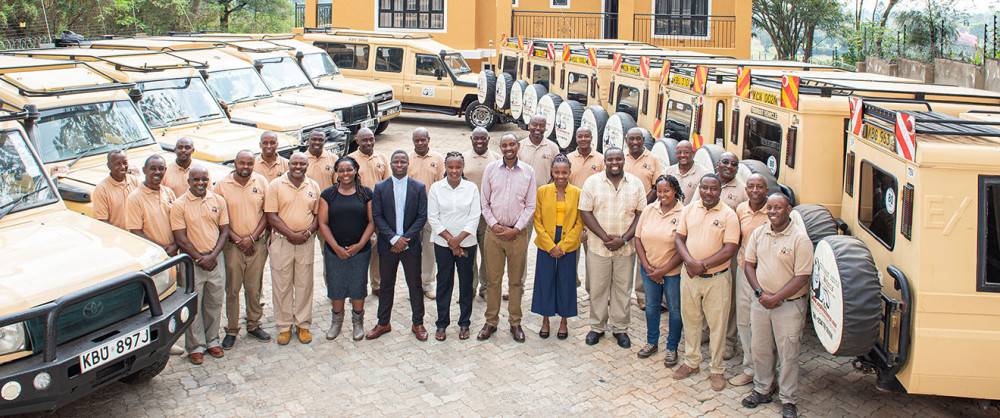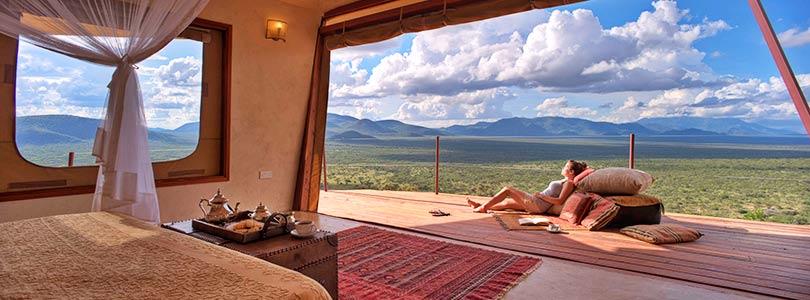Best Facts To Selecting Mombasa Safari Tours
Best Facts To Selecting Mombasa Safari Tours
Blog Article
What Safety And Security Precautions Should I Be Aware Of Before A Holiday In Mombasa Kenya?
Be conscious of safety and security concerns when you travel to Mombasa, Kenya is vital to ensure a pleasant and safe journey. Keep in mind these key factors:
1. General Security
Keep yourself informed. Stay up-to-date with local news and any travel tips given by the country you're traveling to.
Make an appointment at your Embassy.
2. Health Precautions
The importance of vaccinations is to keep up-to-date with routine vaccinations. Consider additional vaccines like Hepatitis B and A, and Typhoid, Yellow Fever.
Malaria Prevention: Mombasa is a malaria-endemic region. Use insect repellent and antimalarial medicines, sleep under mosquito nets and wear long sleeves at night.
Food Safety and Water Take boiled or bottled water, do not drink ice cubes, and eat well-cooked food. Be cautious about street food.
3. Personal Security
Be cautious when walking in the dark. Stay in areas that are well lit and populated. Avoid walking along beaches at night or in quiet places.
Protect Your Values Secure Your Valuables: Use hotel safes to store passports, money, as well as other important items. Avoid displaying expensive items like jewelry or electronics.
Choose a trusted transportation option: Use licensed taxis, ride hailing service or transportation provided by your Hotel. Avoid taxis that are not clearly marked.
4. Local Laws and Customs
Respect the local culture. Dress modestly, especially when visiting religious places. Be familiar with local customs and practices.
Drug Laws: Kenya has strict drug laws, with harsh penalties. Beware of using illegal drugs.
Photography: Always get permission prior to taking photos of people, particularly in rural areas, or of government and military buildings.
5. Beach Safety and Water Safety
Be safe when swimming. Pay attention to the local news about currents, conditions and swimming. Utilize designated swimming areas.
Marine Wildlife: Be mindful of marine creatures like sea urchins and jellyfish. If you are walking along the beach, ensure to wear shoes that are comfortable.
6. Crime Prevention
The petty crime of bag snatching as well as pickpocketing are common, especially in crowded places. Keep your belongings in a secure location and be vigilant.
Scams: Be cautious of people who offer generous assistance or deals that seem too appealing to be real. Only use licensed tour operators.
Emergency Contacts: Get familiar with local emergency numbers that include Fire (999), Ambulance (999) as well as Police (999). Always keep the contact details of your consulate or embassy handy.
7. Natural Hazards
Weather: Mombasa enjoys a tropical climate that can lead to massive rainfall and flooding. This is particularly true in the rainy season, from April to June and from October to November. Stay informed about weather forecasts.
Sun Protection: Keep yourself safe from sunburns and heat exhaustion by wearing hats, applying sunscreen and drinking plenty of water.
8. Travel Insurance
Comprehensive coverage. Make sure that your travel insurance policy includes insurance for medical emergencies, theft and loss, as well disruptions in travel. Check if your insurance plan includes water sports as well as other activities you plan to do.
If you keep these safety and security concerns in mind, you'll be able to more comfortably enjoy your time in Mombasa without worry. Check out the most popular Kenya safaris for site tips including tour firms in kenya, mombasa safari packages, kenya safari holiday packages, safari and tours, safari mombasa kenya, africa in kenya, kenya africa travel, mombasa safari, safari a nairobi, african safari kenya and more.
What Do I Need To Be Aware Of About The Conditions In Mombasa During My Vacation?
Knowing the weather patterns of Mombasa is crucial to packing and getting the most out of your trip. Here are the most crucial factors to consider when planning your trip.
1. Climate Overview
Mombasa is a city that is tropical that has high temperatures throughout the year. Expect temperatures that are warm, ranging from 24degC and 32degC.
2. Seasons
This is a time that is characterized by high temperatures and high humidity. It is also the busiest tourist season in particular during December and January.
Long rains: (April-June) The rainy season is marked by heavy rains and storms. Roads can become muddy and make difficult for travelers. This is the off-season for tourism.
The cooler season (June to October): This is the most relaxing time to visit, with less humidity and lower temperatures. The weather is perfect for outdoor activity.
Short Rains (October - November) Short Rains (October - November): These are brief showers of rain that are less intense. Rain showers are usually brief and are later followed by bright sunlight.
3. Packing Tips
Lightweight Clothing: Pack light clothes that are breathable like linen and cotton to keep cool during the hot summer months.
Rain Gear: If you travel during the rainy season it is recommended to bring an umbrella, a waterproof jacket, and a pair of waterproof shoes.
Sun protection wearing a hat with a broad brim, wearing sunglasses, and wearing light clothes to cover your skin all provide protection from sun.
Swimwear: Make sure that you bring your swimsuit at all times you visit the hotel pools and beaches.
4. Weather-specific activities
Beach Time - The best time to visit the beach in cooler weather (June to October) is when the sea is calm and the weather is nice.
From November to March the calm and clear waters are perfect for water sports such as diving, snorkeling and more.
Wildlife Viewing Wildlife Viewing: The cooler time of the year (June to October) is a great time for wildlife excursions and safaris, since the weather is more bearable.
5. Health Concerns
Hydration: Keeping healthy is crucial for those living in the hot, humid climate. Drink plenty of water particularly if you're taking a walk in the sun.
Heat-Related Diseases: Be alert to the risks of heat exhaustion or heatstroke. Take breaks in the shade, wear loose-fitting clothes, and avoid strenuous activities during peak heat.
6. Travel Adjustments
Be aware of delays if you intend to travel during rainy season. There may be road closures or restrictions regarding outdoor activities.
Tropical Rains: Sometimes tropical rains can cause flight delays. Plan your trip ahead and be aware of any delays.
7. Environmental Concerns
Natural hazards. Be aware of the dangers of flooding during heavy rains. Stay up-to-date with the weather and adhere to local safety advice.
Tide Awareness: If you are planning activities at the beach, be mindful of the tides that can change drastically. Look up local tide times for safe swimming and beachcombing.
When you know these weather factors it will help you plan your holiday activities, pack appropriately, and remain safe during your time in Mombasa. See the best best holiday destinations in kenya for blog recommendations including africa tours, trips to kenya africa, beach in mombasa, tours safari africa, tours safari africa, beach in mombasa, african safari tours, kenya safari beach, mombasa tour packages, safari trips in africa and more.
What Safari And Tour Planning Should I Be Aware Of For My Trip To Mombasa Kenya?
If you are planning a trip to Mombasa (Kenya) It is important to plan your safari or tour carefully. This will guarantee a smooth and memorable experience. Here are a few important things to keep in mind:
1. Select a Safari Tour Operator
Reputation: Choose an operator who has good reviews. Select tour operators that are members of the Kenya Association of Tour Operators.
Check out the different packages offered by the various tour operators. Packages are available in a range of budgets and luxury categories, with different durations, accommodation and activities.
Guides - Ensure that the guide is skilled and knowledgeable guides that are certified.
2. The most sought-after Safari Destinations from Mombasa
Tsavo: Tsavo West is one of Kenya's largest game reserves. Tsavo West is split in two parts, Tsavo West East. The park's diverse wildlife comprises elephants, rhinos and lions.
Amboseli National Park: Famous for its large elephant herds as well as stunning views of Mount Kilimanjaro.
Shimba Hills National Reserve: Close to Mombasa the reserve offers stunning landscapes and the chance to see rare species like the Sable Antelope.
Maasai Mara is a wildlife paradise that's a little further than Mombasa. It is famous for its Great Migration, and it offers a unique wildlife experience.
3. Safaris and Tours are available in many different types.
Game Drives: These traditional safaris are games drives in 4x4 cars that allow close encounters with wildlife.
Walking Safaris: These guided walks are an excellent way to explore the forest and learn the smaller plants and animals.
Balloon Safaris are available in certain parks, including the Maasai Mara which offers the bird's-eye view of the wildlife.
Bush and Beach Combos. Combine a Safari with a relaxing time at the gorgeous Mombasa beach for a diverse experience.
Cultural Tours also include excursions to historic sites such as Fort Jesus or Mombasa Old Town.
4. Timing and Duration
Best time to visit: The dry season (June-October) is the ideal time to observe wildlife since animals tend to gather close to water sources. The Great Migration occurs in the Maasai between July and October.
Safaris could be one-day trips or a week-long adventure. Consider how long you would prefer to spend in the wilderness and your schedule.
5. What to bring in the bag
Clothing Dress in light and breathable clothing in neutral colors. Also, pack the long sleeves as well as pants as to protect against mosquitoes during the evening.
Shoes for walking: Comfortable walking shoes or boots are vital, especially for walking safaris.
Accessories: Sunscreen, sunglasses and insect repellents are the important items.
Equipment: Binoculars are crucial to wildlife photography and viewing. A quality camera with spare batteries and memory cards is also crucial.
Medicine: Take any personal medication. Also, consider carrying anti-malarial medications and a basic first-aid kit.
6. Health and Safety
Immunizations: Make sure you are vaccinated. the recommended vaccinations and carry the certificate of vaccination if needed.
Prevention of malaria is simple: apply insect repellents, wear long-sleeved clothes at night, and think about the use of antimalarial medications.
Food safety and water: Drink only bottled, pure water. Food establishments that have an excellent reputation.
7. Payments and Costs
Make sure you budget for your trip: Safaris can cost a lot, so be sure to plan your trip carefully. Think about all-inclusive vacation packages which include accommodation, meals, and even activities.
Payment Methods: Many companies accept credit cards and bank transfer. Check payment options, including any deposits required.
8. Environmental and Ethical aspects
Eco-Friendly Operators: Choose operators committed to practices of sustainable tourism.
Wildlife Protection: Take care of the animals by ensuring they have a safe space, and avoiding disturbing them. Do not purchase products made from endangered species.
9. Travel Insurance
Protection: Ensure that your travel insurance policy covers emergency medical situations, safari activities and travel disruptions.
10. Booking Confirmation
Safaris, particularly during high-season, are highly popular and often book up fast. Make reservations early.
Confirmation : Confirm with your tour guide all of the information, including pickup times, the itinerary, and contact info.
If you consider these aspects when you think about them, you can plan a an exciting and organized safari starting from Mombasa that will make your Kenyan vacation. See the recommended Kenya safaris for more recommendations including tour mombasa, beach in mombasa, kenya travel, travel tours in kenya, kenya tours and travel, travel tours in kenya, kenya holiday packages, african safari africa, tour company, kenya tours and safaris and more.